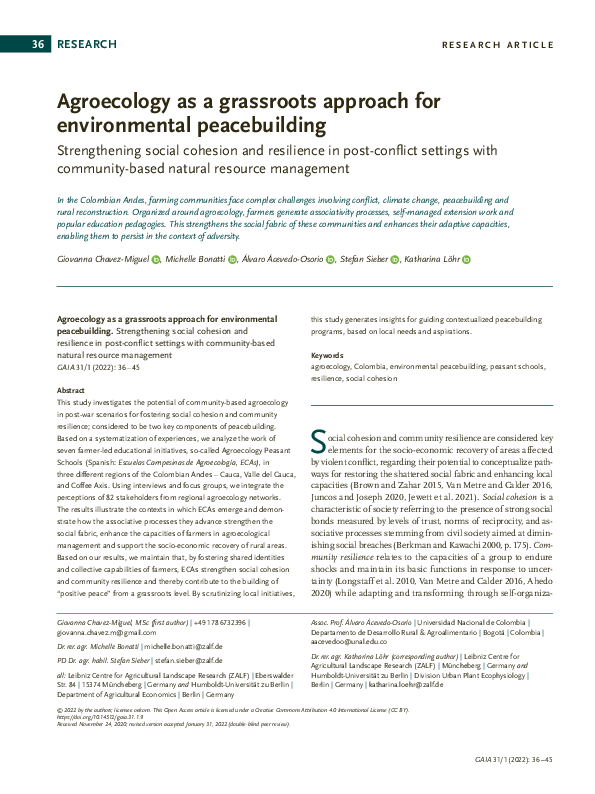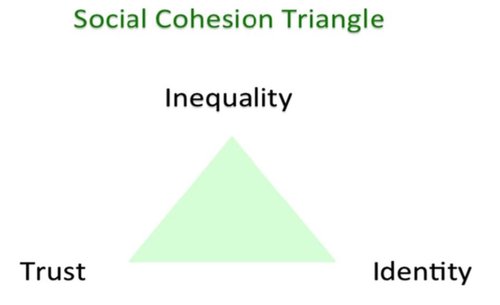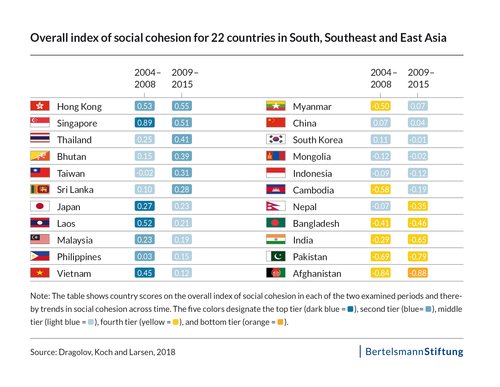Agroecology as a grassroots approach for environmental peacebuilding
Key facts
Shared values
Connectedness
Summary
In the Colombian Andes, farming communities face complex challenges involving conflict, climate change, peacebuilding and rural reconstruction. Organized around agroecology, farmers generate associativity processes, self-managed extension work and popular education pedagogies. This strengthens the social fabric of these communities and enhances their adaptive capacities, enabling them to persist in the context of adversity.
This study investigates the potential of community-based agroecology in post-war scenarios for fostering social cohesion and community resilience; considered to be two key components of peacebuilding. Based on a systematization of experiences, we analyze the work of seven farmer-led educational initiatives, so-called Agroecology Peasant Schools (Spanish: Escuelas Campesinas de Agroecología, ECAs), in three different regions of the Colombian Andes ‐ Cauca, Valle del Cauca, and Coffee Axis. Using interviews and focus groups, we integrate the perceptions of 82 stakeholders from regional agroecology networks. The results illustrate the contexts in which ECAs emerge and demonstrate how the associative processes they advance strengthen the social fabric, enhance the capacities of farmers in agroecological management and support the socio-economic recovery of rural areas. Based on our results, we maintain that, by fostering shared identities and collective capabilities of farmers, ECAs strengthen social cohesion and community resilience and thereby contribute to the building of “positive peace” from a grassroots level. By scrutinizing local initiatives, this study generates insights for guiding contextualized peacebuilding programs, based on local needs and aspirations.

Explore the hub further



